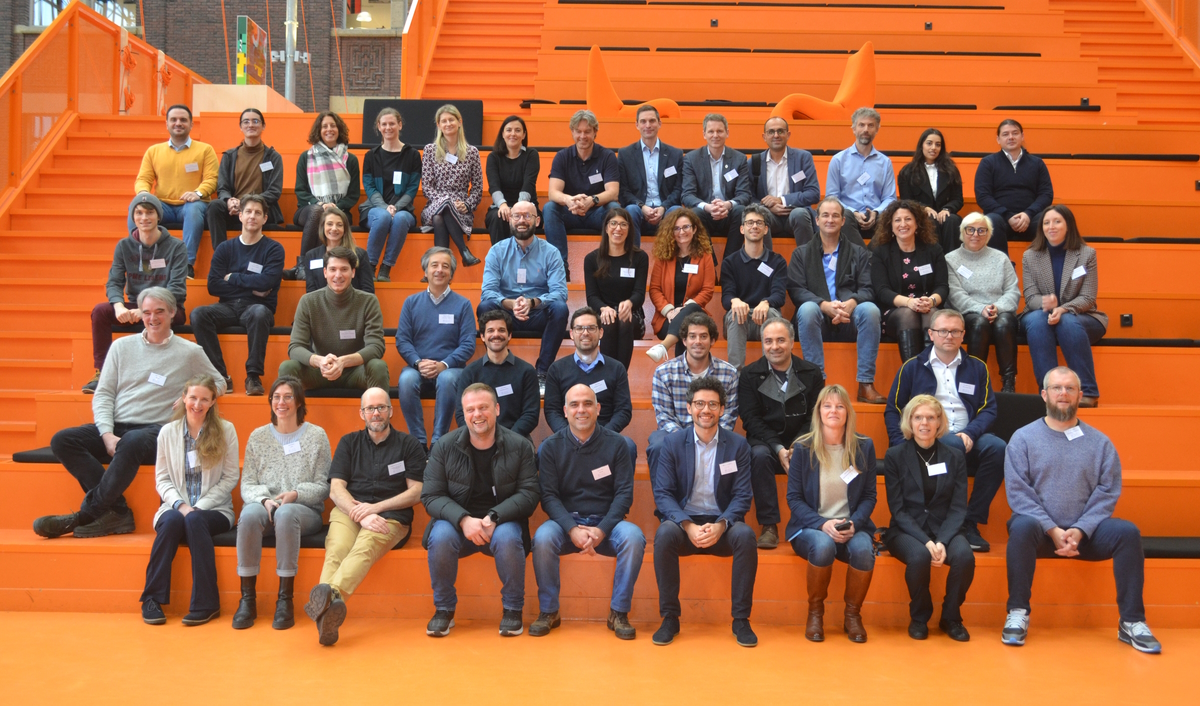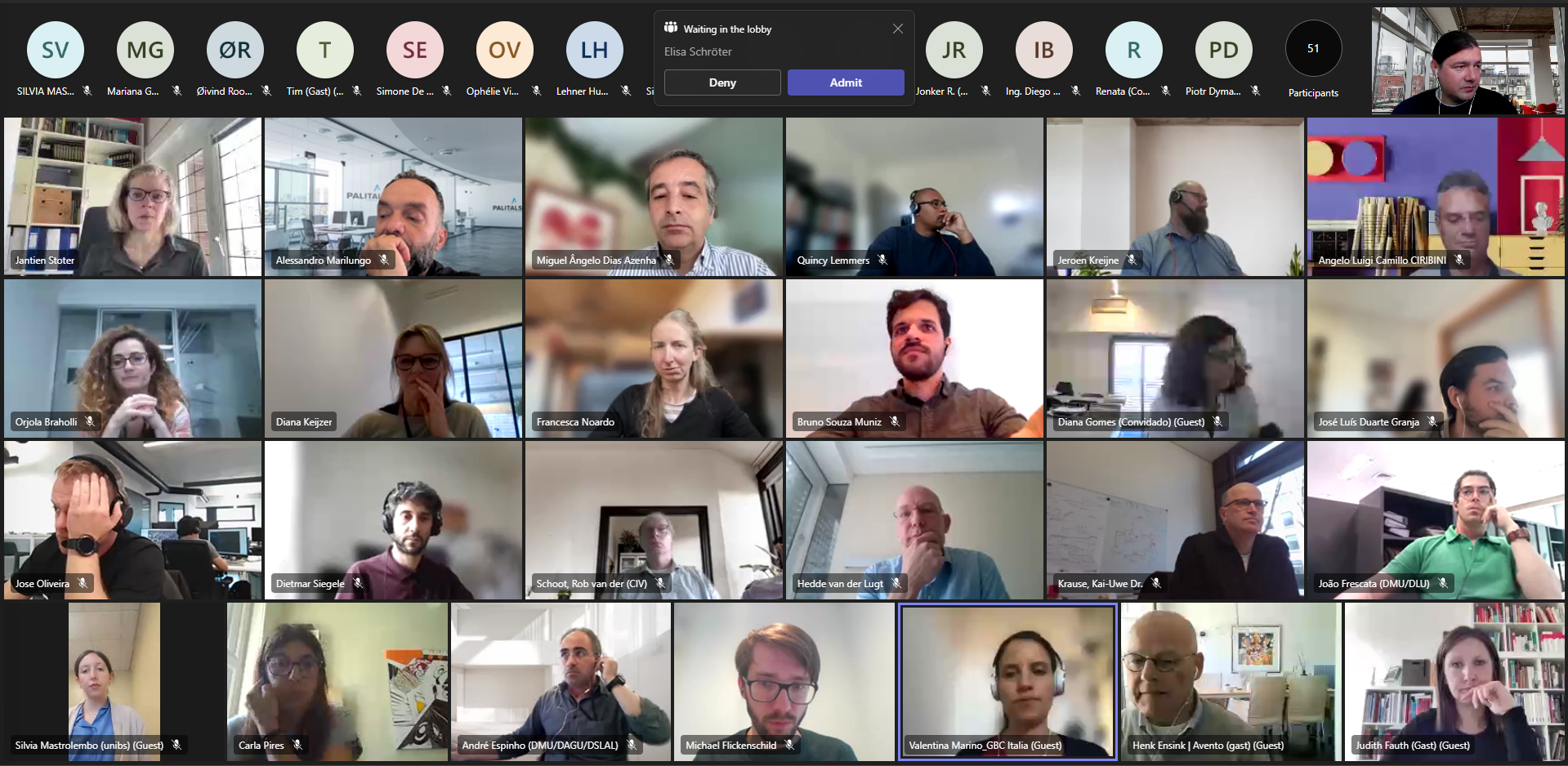Project Overview




Change toolkit for digital building permit project (CHEK) is an innovation and research EU-funded project that will provide an innovative toolkit supporting the digitalization of building permit issuing and automated compliance checks.
- Project number: 101058559
- Project name: Change toolkit for digital building permit
- Project acronym: CHEK
- Call: HORIZON-CL4-2021-TWIN-TRANSITION-01
- Topic: HORIZON-CL4-2021-TWIN-TRANSITION-01-10
- Type of action: HORIZON Innovation Actions
- Granting authority: European Health and Digital Executive Agency
- Project starting date: 1 October 2022
- Project end date: 30 September 2025
- Project duration: 36 months
- Project Coordinator: TECHNISCHE UNIVERSITEIT DELFT
- Project Coordinator Address: Stevinweg 1
2628 CN Delft, Netherlands - Project Contact person: Dr.Francesca Noardo (OGC) and Prof.dr.Jantien Stoter (Technical University of Delft)
- Project email address: info@chekdbp.eu
- Total project cost: € 5 667 728
- EU Contribution: € 4 917 856,07
- Grant form: Budget-based
- Grant mode: Action grant
Motivation
Building permits ensure high quality in buildings and city development, realized through the compliance to city regulations. Such regulations foster European priorities such as sustainability, beauty and citizens’ safety and well-being, in line with the Renovation Wave Strategy.
Today’s building permit issuance is mainly a manual, document-based process. It therefore suffers from low accuracy, low transparency and low efficiency. This leads to delays and errors in planning, design and construction. Finally, manual (document-based) compliance checking is prone to errors and suffers from limited accuracy and precision.
Several EU countries have developed attempts to push forward the digitalization of building permit procedures. But none of these have led to complete adoption of digital building permit processes within municipalities.

Purpose

The aim of CHEK is to take away barriers for municipalities to adopt digital building permit processes by developing, connecting and aligning scalable solutions for regulatory and policy context, for open standards and interoperability (geospatial and BIM), for closing knowledge gaps through education, for renewed municipal processes and for technology deployment in order to reach TRL 7. CHEK will do this by providing an innovative kit of both methodological and technical tools to digitize building permitting and automated compliance checks on building designs and renovations in European urban areas and regions.
CHEK will develop DBP process, New technologies, Open standards-based data exchange. This requires: (1) aligning available digital technologies to municipal process, enabling new methods and business models; (2) development of data Open standards, including Building Information Models (BIM), 3D city models and reciprocal integration (GeoBIM); (3) up/re-skilling officers and users; (4) improving, aligning and integrating technology; (5) realizing and demonstrating scalability.
Methodology
CHEK will address these barriers to the use of DBP: regulatory context, standards and interoperability, knowledge gaps, technology deployment, and need for scalable solutions. CHEK will do this by providing a kit of both methodological and technological tools to fully digitalize building permitting and partially automate compliance checks on building designs which will lead to an improvement of 60% in efficiency and will lead to the uptake of DBP by potentially 85% of municipalities in Europe. At the end of the project, the results will be demonstrated in the working environment of municipalities and designers.

Outcomes
CHEK Ambitions
- A completely re-designed organization model will be implemented in the municipalities, in order to shift to a new agile data-driven and digital-based organization.
- CHEK will bring a series of innovative tools, coordinated by a web platform with external connection through OpenAPI based, that will support designers and technicians during the permitting process, improving effectiveness, shortening times and costs for the overall process, and resulting in less errors.
- A game-changing innovation will also be brought into (up/re-)skilling: it will be the first time that such interdisciplinary knowledge, related to DBP, is systematized, coordinated and structured by a balanced multidisciplinary team.
- CHEK will allow modeling specifically formed BIM and 3D city models starting from a clear definition of Regulatory Information Requirements, translated into IFC and CityGML specifications.

Demonstration Sites
Lisbon (PT)

Vila Nova de Gaia (PT)

Ascoli Piceno (IT)

Prague (CZ)

Site Information
- Country: Portugal
- Municipality: Lisbon
- Address: Rua de Santa Marta, nº 41-41B
- Short Description: Building in urban context on an empty plot
- Construction Method: New Construction
- Occupancy Type: Mixed Use: Residential and Commercial
Site Information
- Country: Portugal
- Municipality: Vila Nova de Gaia
- Address: Rua Boavista | Rua Nuno Augusto de Oliveira Ramos
- Short Description: Detached single house
- Construction Method: New Construction
- Occupancy Type: Residential
Site Information
- Country: Italy
- Municipality: Ascoli Piceno
- Address: Via Genova, 4-6
- Short Description: Urban Renovation
- Construction Method: Demolition of old buildings and new construction
- Occupancy Type: Mixed Use: Residential and Commercial and Services (70% minimum residential)
- Country: Czech Republic
- Municipality: Prague
- Address: Habrová Str.
- Short Description: Public school planned to be built within development project called Žižkov Freight Station
- Construction Method: New Construction
- Occupancy Type: Educational

